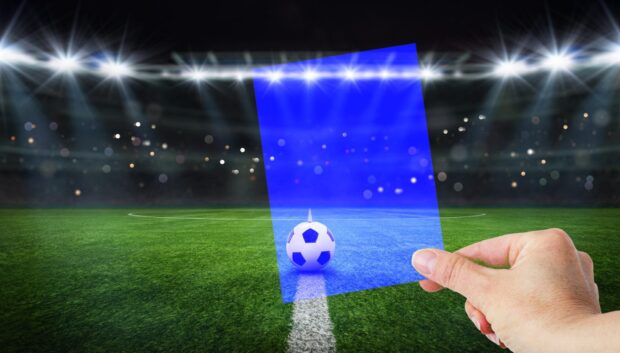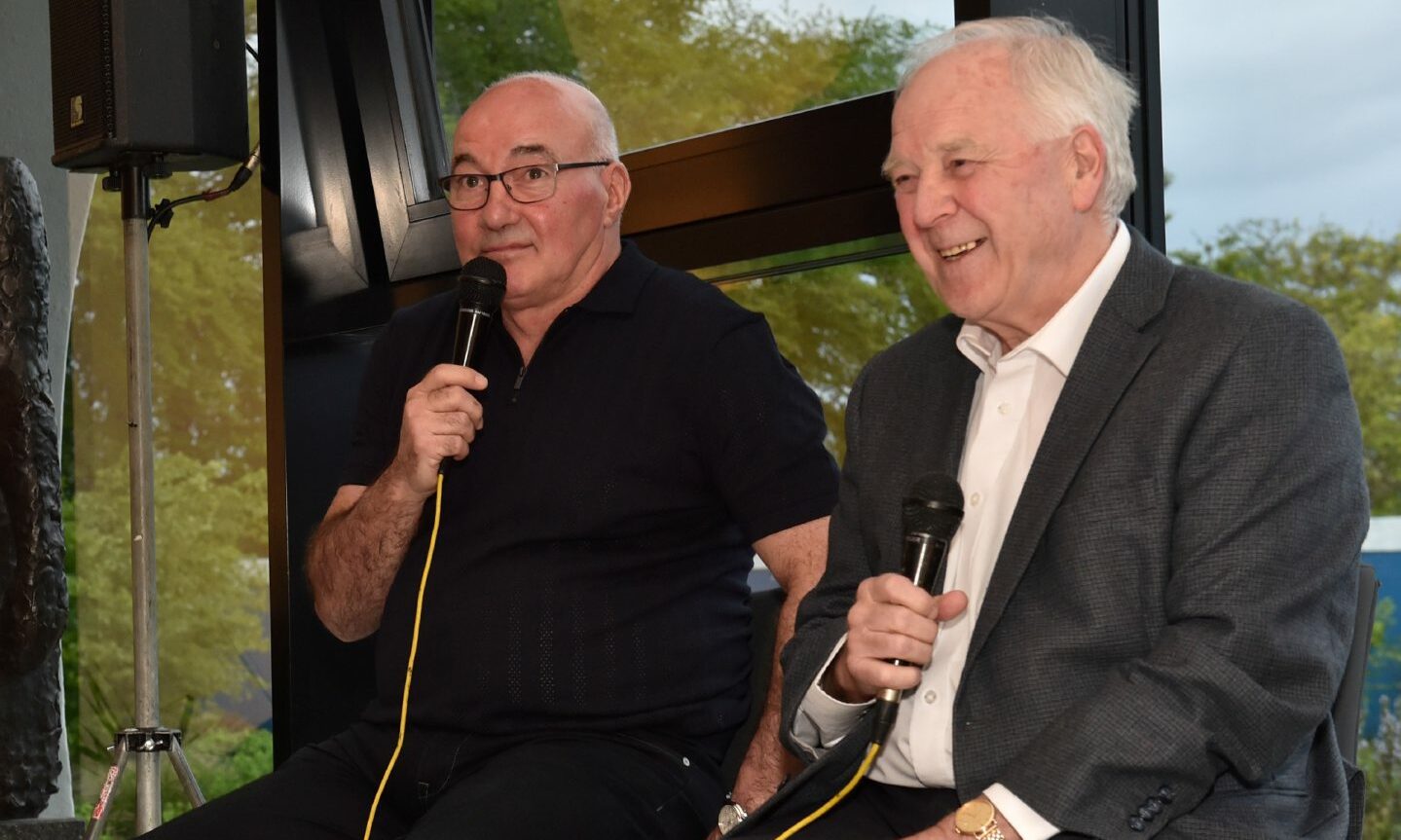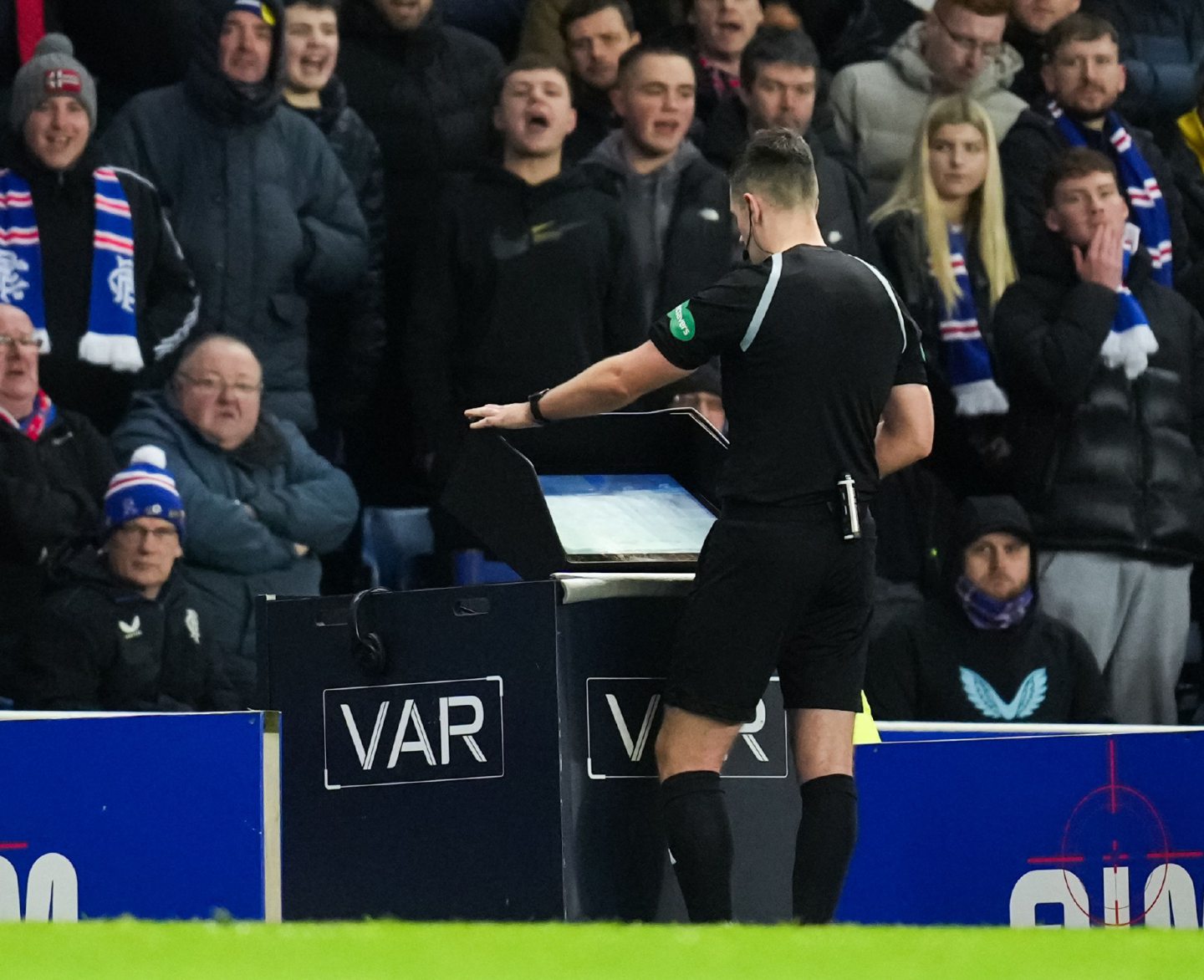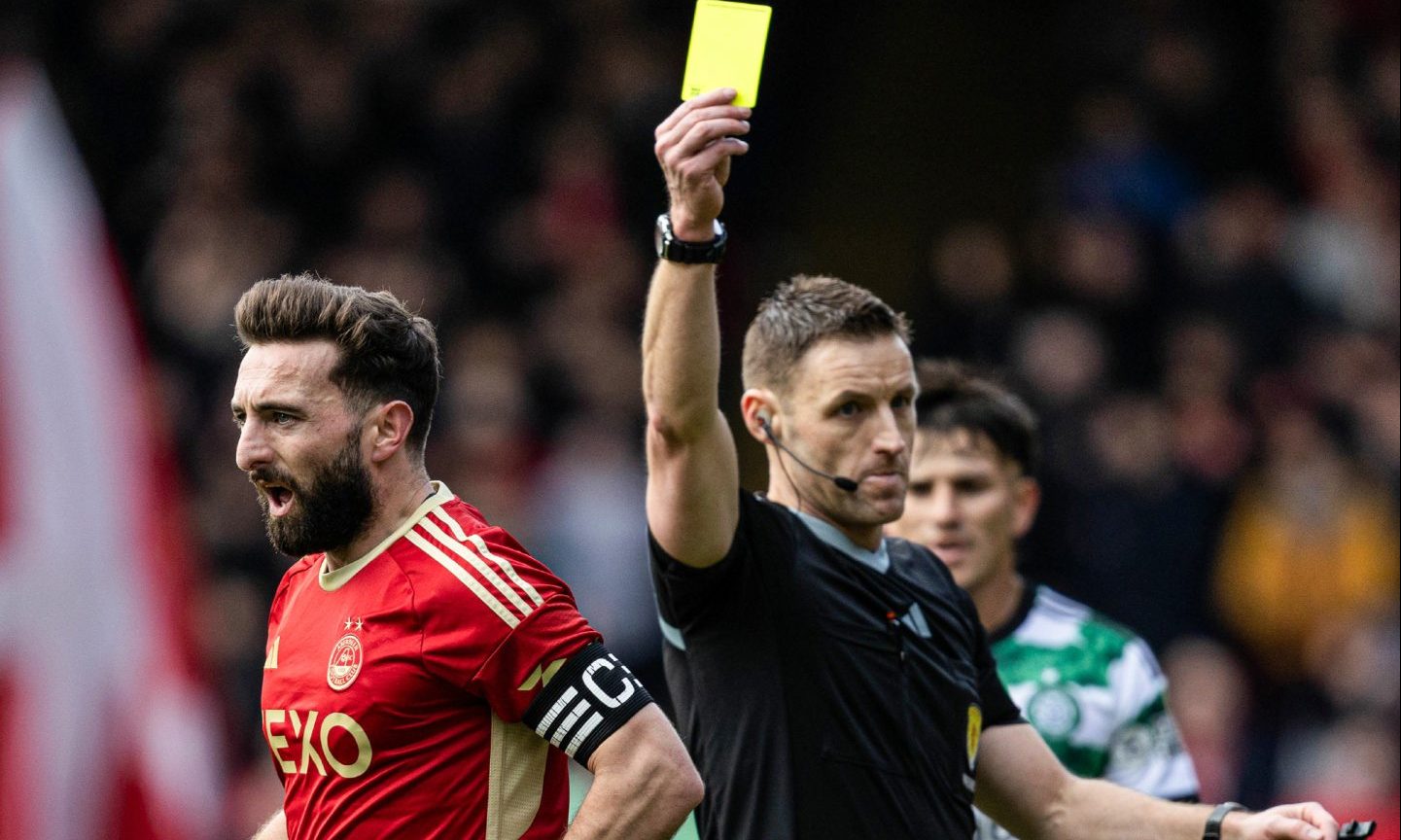You can almost imagine The Fast Show’s Ron Manager spontaneously combusting at the thought of “blue cards” in professional football.
This would surely have been a step too far for the character, played by Paul Whitehouse, who blathered on about “jumpers for goalposts” and gloried in the days when thousands of flat-capped chaps, in Ron’s sphere – revelled in the appeal of standing on terraces without any recourse to health and safety regulations.
And yet, the world’s most popular sport does seem determined to appeal to a market which doesn’t exist by tinkering with regulations and introducing so-called innovations.
What are the blue card proposals?
Its lawmakers Ifab [International Football Association Board] are poised to trial sin-binning players and issuing blue cards, which would lead to offenders spending 10 minutes in the technical area after being sanctioned by a referee.
Sin-bins have already been used at grassroots level for dissent and disagreement with referees’ decisions, but their use could be extended to cynical fouls as part of a trial.
But is this really going to improve the entertainment on offer for fans and rein in the misdeeds of the miscreants? Or is it further evidence that the same legislators who have sparked controversy by bringing VAR (Video Assistant Referees) into the game are hell-bent on change for change’s sake without considering the practical issues?
After all, Aberdeen’s Gothenburg Great, Alex McLeish, was once asked what would have happened if the policy adopted by rugby referees of’ punishing loudmouth players by pushing their team back 10 yards had been introduced to the 11-a-side pursuit.
He replied: “Willie Miller would have played all his football in Norway!”
Taking stock from other sports
Football’s blazerati has looked at rugby and cricket’s success with video technology and thought: “We fancy a piece of that”.
But these are completely different entities. Rugby has myriad set-pieces, scrums, line-outs and stoppages in play which make it easy to interrupt the flow. (Even though this is probably not the ideal moment to celebrate the union code’s use of TV pictures, given the fashion in which Scotland were robbed of a try – and victory – against France at the climax of the Six Nations Championship tussle with France last Saturday).
The Scots seemed to have claimed the win with a last-gasp touchdown. However, the Australian referee, Nic Berry, and his TMO [television match official] Brian MacNeice, then looked at countless images of the incident, before reaching the conclusion the ball had not been grounded – although the evidence painted a starkly different picture.
It was an awful muddle, but the reference highlights another issue with the proposals devised by Ifab, which will be discussed at the organisation’s annual meeting in Loch Lomond next month. If blue cards are introduced, how does that impact on the red and yellow ones in the ref’s pocket?
How would the blue card plan work?
Well, as it transpires, there will also be the possibility of mixing shades. Hence, if a player returns from the sin-bin and subsequently receives another blue card, they would also be shown a red card and be permanently dismissed from the contest.
And a combination of a blue and a yellow would also add up to a red from the man (or woman) in black on the green green grass. Woooofff, as Archie Macpherson might say.
The Premier League has already ruled out being part of the initial roll-out of any trial, while football’s world governing body Fifa said “reports of the so-called ‘blue card’ at elite levels of football are incorrect and premature”.
And Alexander Ceferin, the president of Uefa, has described sin-bins as “the death of football” and has not been alone in expressing his scorn at the proposals.
But the reality is that sin-bins were piloted in England in 2018-19, with the Football Association reporting a 38% total reduction in dissent across 31 leagues.
Therefore, whatever scepticism might exist about the initiative, there is little question it is going to be put to the test during the next couple of years.
‘Football should control dissent’
Andrew Smith, the chairman of the Scottish Football Supporters Association, is among those who can see merit in the ongoing efforts to address football’s glitches.
He told me: “Right now, rugby does yellow cards, dissent and time control much better that football. And I don’t know why the latter has taken so long to adopt the good ideas.
“In 2024, yellow cards mean very little and are simply warnings that players don’t care about, even when the actions leading to them can be cynical.
“Whereas, in rugby, a yellow is serious, affects the team, and can be a game changer.
“I am totally in favour of cynical play and referee intimidation resulting in an immediate 10-minute spell on the touchline.”
Andrew who is from Inverness added: “I think football should work to control dissent in the same way as rugby where only the captain can address the referee and it’s time football addressed some of the cynicism that has leeched into the game over the years.
“With Fifa’s Ifab meeting in March and our SFA as hosts, this is the kind of thing that should be high up the agenda and implemented as soon as possible.”
Third card is ‘unnecessary’
Nonetheless, why the advent of “blue” cards? The former Aberdeen FC media spokesman, Dave Macdermid, believes the existing sanctions are sufficient.
He said: “The addition of a third card is completely unnecessary and, having seen the negativity surrounding the introduction of VAR, the last thing the game needs right now is a further complication of the rules.
“Additionally, from a practical point of view, it would only encourage teams to waste time even more than they currently do, knowing that the recipient of the blue card will return to the fray before long.
“Football is a simple game, yet the authorities continue to complicate it, and dilute it as an entertaining spectacle from the fans’ perspective.”






